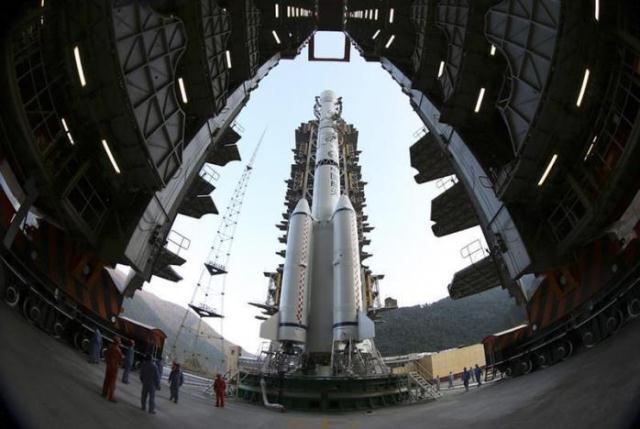
In space, the looming threat of a new arms race
Chinese astronauts Jing Haipeng and Chen Dong will be on board the Shenzhou-11 spacecraft as it blasts off from the Jiuquan Satellite Launch Center in the Gobi desert, the official Xinhua news agency reported Sunday. They will arrive at China's orbiting space lab Tiangong-2 within 48 hours and stay for 30 more before returning to earth, according to the report. Jing, a 50-year-old astronaut who has already been to space twice, will command the mission to the lab, which was launched in September.
He and Chen will carry out research projects related to in-orbit equipment repairs, aerospace medicine, space physics and biology, atomic space clocks and solar storm research, Xinhua reported earlier. Beijing is pouring billions into its space programme in a bid to catch up with the US and Europe.
It announced in April that it aims to send a spacecraft "around 2020" to orbit Mars, land and deploy a rover to explore the Red Planet's surface.
Beijing sees the military-run programme as a symbol of China's progress and a marker of its rising global stature. The nation's first lunar rover was launched in late 2013, and while it was beset by mechanical troubles it far outlived its expected lifespan, finally shutting down only last month.
Here's what can happen to the human brain in space
But so far China has largely replicated activities that the US and Soviet Union pioneered decades ago. It intends to set up its own manned space station by 2022, and eventually put one of its citizens on the surface of the moon.









1732881519-0/Express-Tribune-(6)1732881519-0-270x192.webp)
1732874090-0/BeFunk_§_]__§-(1)1732874090-0.jpg)






COMMENTS
Comments are moderated and generally will be posted if they are on-topic and not abusive.
For more information, please see our Comments FAQ